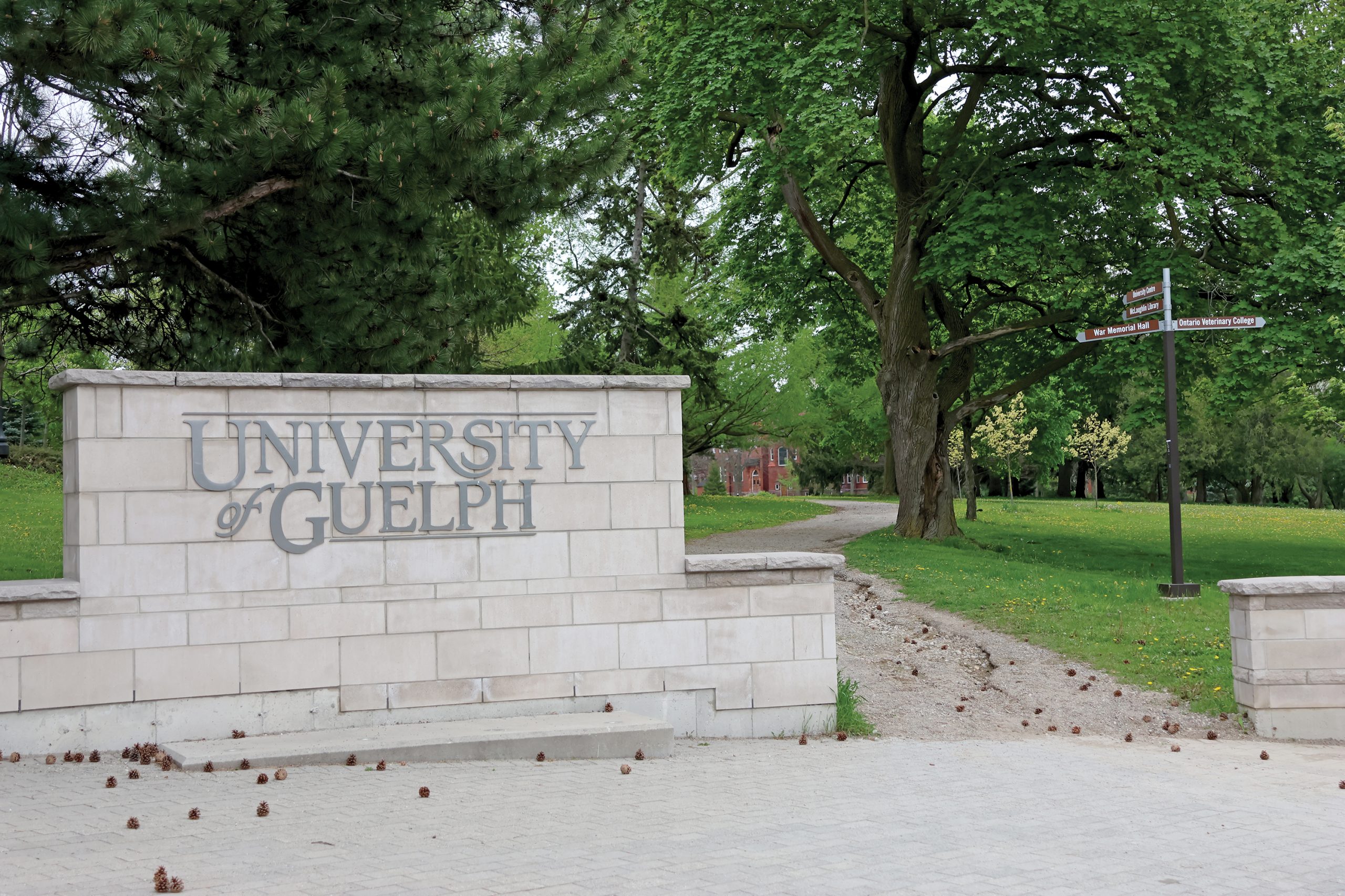GUELPH – The University of Guelph has officially turned 60.
Established by the amalgamation of its three founding colleges — the Ontario Agricultural College, the Ontario Veterinary College and the Macdonald Institute — the U of G was founded in 1964, and as of May 8, it has been around for six decades.
“For 60 years, the University of Guelph has been on a mission to Improve Life, and that commitment has always started at home,” U of G president and vice-chancellor Charlotte Yates, said in a news release detailing some of the impacts the school has had on the wider Guelph community.
“I’m proud that the U of G community has been able to support Guelph’s innovation and prosperity throughout our history.”
The following are a few of the initiatives and institutions the university listed as having “become part of the lives of so many Guelphites”:
– OVC Health Sciences Centre: Comprised of three veterinary hospitals, the OVC Health Sciences Centre has carried a legacy of more than 150 years of service to animals, with roots in OVC’s founding in 1862. It has long provided medical and surgical care for small and large animals in the Guelph area while training future veterinarians in a clinical environment.
– College Royal: The largest open house event of its kind in North America, College Royal began in 1925 as a livestock show run by OAC. It has since grown to involve all colleges, attracting more than 20,000 visitors in one weekend, for performances, activities, learning experiences and more.
– The Arboretum: In 1970, 330 acres of the U of G campus were dedicated towards a “living laboratory” for research and education. Today, the Arboretum is the most-visited part of campus.
– Wild Ontario: Beginning in the early 1980s with the OVC Wild Bird Clinic, Wild Ontario has grown to an environmental and science education program with an administrative home in U of G’s Department of Integrative Biology, teaching the Guelph community about the impact humans have on wildlife.
– Alumni Stadium: Built in 1970, Alumni Stadium has long been home to the Guelph Gryphons varsity football team and annual Homecoming celebrations. After the addition of a football pavilion in 2017 and synthetic turf and track, the stadium now regularly hosts the Toronto Argonauts training camp.
– Art Gallery of Guelph: A non-profit gallery of over 9,000 works, AGG opened in 1980 with U of G as one of four sponsors. Today, the gallery tells the story of more than 300 years of Canadian art with a mission to nurture artistic experiences and drive positive social change.
– Creative Encounters: Since 1993, this science, technology and engineering outreach organization has provided hands-on learning experiences at camps, workshops, clubs, events and more, to spark curiosity and innovation in the next generation.
– Guelph Jazz Festival: In 1994, music professor Dr. Ajay Heble collaborated with Julie Hastings to founded a festival that has brought creative improvised music to Guelph and gone on to build a strong international reputation.
– Gryphon Camps: Highly regarded in the Guelph community, Gryphon Kids and Camps are a long-standing tradition at U of G. They provide youth ages 5–17 with creative, exceptional and fun general activity or sport-specific programming, led by camp counsellors, Gryphon coaches and student-athletes.
– Guelph Junior Gryphons: Since 2013, U of G’s Athletic Department has developed partnerships with minor sport organizations in Guelph, allowing young athletes access to our facilities and to work with varsity coaches and represent themselves as Gryphons with their jerseys and team wear.
The list goes on, and includes various charitable projects.
Project Serve, an initiative that sees U of G students donate volunteer time to local organizations, has been taking place for 25 years, benefiting organizations like the Guelph Food Bank, Community Living, the Guelph Humane Society, and more.
The university runs one of the most successful United Way campaigns in the city, raising more than $500,000 last year, and its annual Relay for Life event has supported cancer research for more than two decades.
The overnight fundraising walk brought in more than $125,000 in 2024.
Nearly 25,000 people at the Guelph campus — faculty, staff, students, alumni and visitors — help shape the city’s economic growth, the release said, noting U of G generates more than $2 billion of GDP in Guelph-Wellington and sustains 13,000 jobs each year through local spending.
This year, the university is celebrating various milestone anniversaries. College Royal turned 100 in March, the OAC is marking its 150th anniversary, OUTLine — the university’s 2SLGBTQIA+ resource and support centre — marks 50 years, and the Indigenous Student Centre turns 20.
The University is inviting people to share memories, pictures and experiences via social media using #UofG60.



